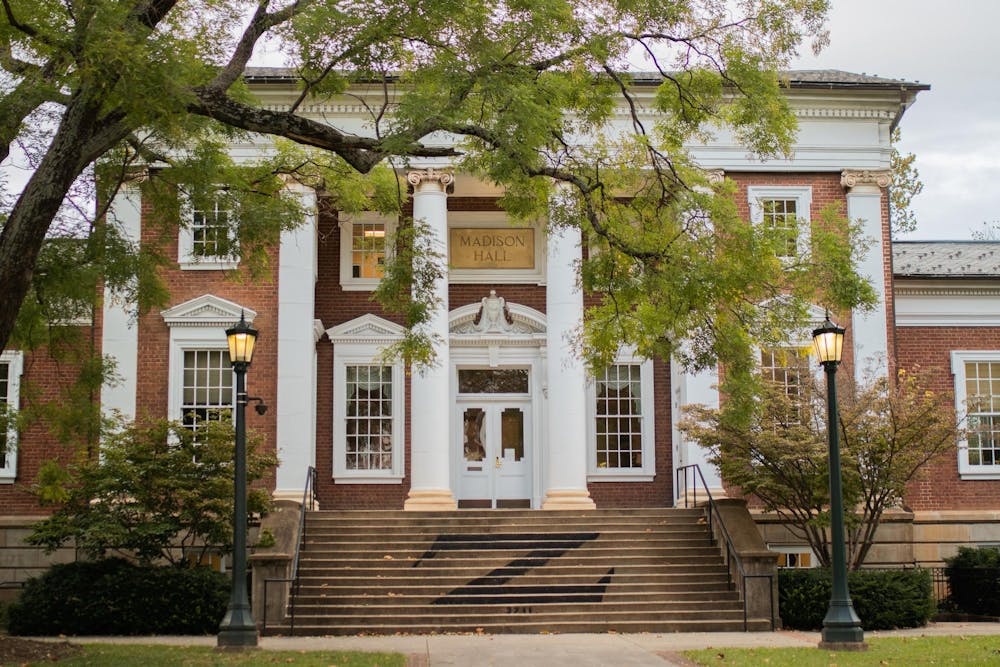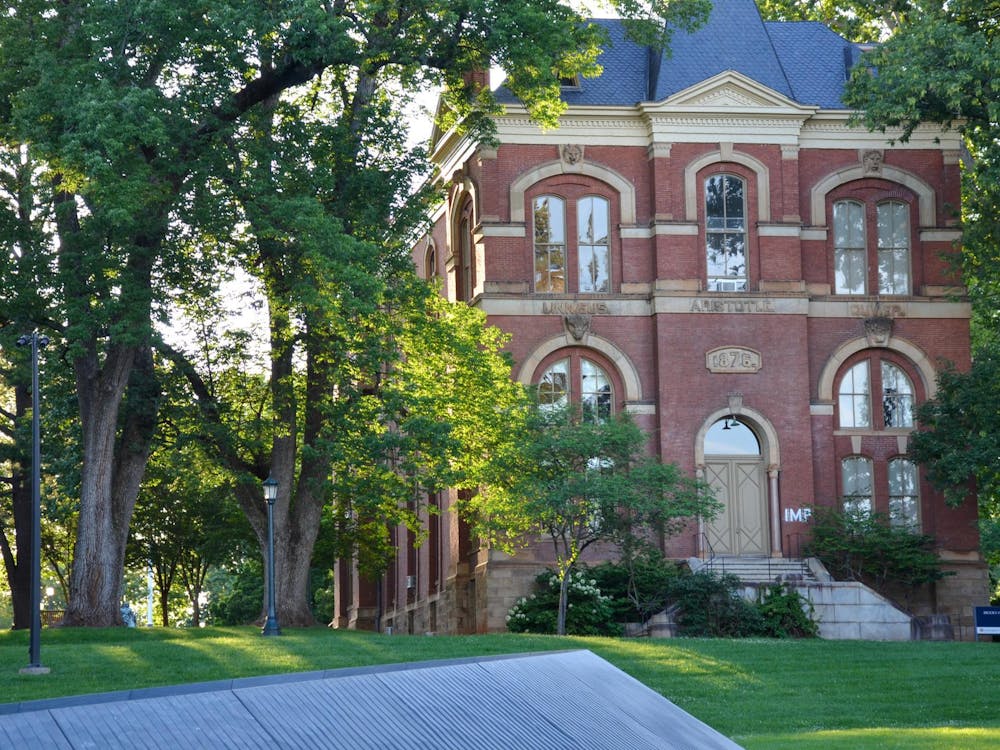When former University President Jim Ryan announced his resignation to the community, he said, “I cannot make a unilateral decision to fight the federal government in order to save my own job.” In the weeks that followed, many dismayed community members expressed regret that the University had not made a more concerted effort to protect Ryan, although doing so would have likely led to a legal battle between the Justice Department and the University.
However, even if the Board of Visitors had felt the University had a strong case against the Justice Department’s claims regarding affirmative action practices at the University, would the Virginia legal system have allowed the Board and Ryan to seek supportive legal counsel?
According to Virginia Code § 2.2-507, public state institutions are represented in all legal matters by the attorney general, or by an appointed assistant — meaning Attorney General Jason Miyares, a Republican who has publicly endorsed President Donald Trump’s administration, makes all decisions regarding legal representation for the University.
For the University, the attorney general’s appointed assistant serves as full-time University counsel. Currently, that position is filled by University Counsel Cliff Iler — selected by Miyares in 2022. Early letters from the Justice Department were addressed to Iler, whose position is responsible for handling any legal matters involving the University.
Prior to Iler’s appointment, Miyares had removed former University Counsel Timothy Heaphy in January 2022. At the time of his removal, Heaphy was on leave from his position at University to work as lead investigator on the January 6 Committee in the U.S. House of Representatives, leaving his position as University counsel temporarily empty.
While at the time, Miyares’s office claimed that the removal was not due to Heaphy’s role in the investigation, the decision still made clear that in Virginia, universities’ counsels serve at the will of the attorney general.
In an interview with The Cavalier Daily, Heaphy noted that not only is University counsel appointed by the attorney general, the lawyer in the role reports to the attorney general rather than the University president.
“[As University counsel, you report to] the attorney general,” Heaphy said. “And that's precisely the problem. The University, a multi-billion dollar enterprise, does not have the ability to hire or fire its own lawyer. That is an inherent conflict of interest that needs to be changed.”
Although university counsel is hired by and reports to the attorney general, the University is responsible for paying this position’s salary. In 2024, Iler’s salary was $289,170, according to records obtained by The Cavalier Daily.
In contrast, private universities can hire their own counsel outside of the bounds of the state government, making them accountable to only the university which hired them. Whether states require public university counsel to be appointed by the attorney general depends on state law.
The University may, at times, also seek outside counsel — but Virginia Code § 2.2-507 notes that any special counsel is also employed and approved by the attorney general. Throughout several legal cases in recent years, the University has sought outside counsel from a variety of different firms. Most recently, McGuire Woods law firm appears to have been representing the University in communications with the Justice Department — with partner Farnaz Thompson assigned to represent the University.
Heaphy explained that the University typically requests outside counsel when a legal matter arises that requires a substantial amount of work or specialized expertise. However, he noted that the attorney general must approve any requests for outside counsel, and could ultimately choose to deny a request from the University.
If the attorney general approves a request for outside counsel, however, he or she also maintains the power to approve or appoint the firm which is eventually hired. If University counsel requests a certain firm for outside counsel, the attorney general may decide that he or she would prefer to appoint a firm on a preferred provider list — a list of law firms maintained by the attorney general’s office which have committed to certain rates to represent state agencies.
While the power to appoint or approve outside counsel lies with the attorney general, the University is responsible for paying any fees charged for legal counsel.
Heaphy also explained that the counsel’s responsibilities vary depending on the person in the position — while he was involved in strategic planning for the University, he said it appears that current counsel has focused more on resolving claims against the University.
“That's again, in part, because the president didn't choose this current University counsel, the attorney general did,” Heaphy said.
The Cavalier Daily reached out to Iler, but he referred a request for comment to the attorney general’s media contact, who did not respond to repeated requests for comment.
According to Heaphy, how closely University counsel works with the attorney general also depends on the person in the role. While he did have to provide regular reports to the attorney general’s office, Heaphy felt his primary responsibility was to the University.
“I considered my role, my primary role, to be protecting the University and helping my clients at the University achieve their goals,” Heaphy said. “I don't think that that is common across [U.Va.] administrations, particularly the current one.”







